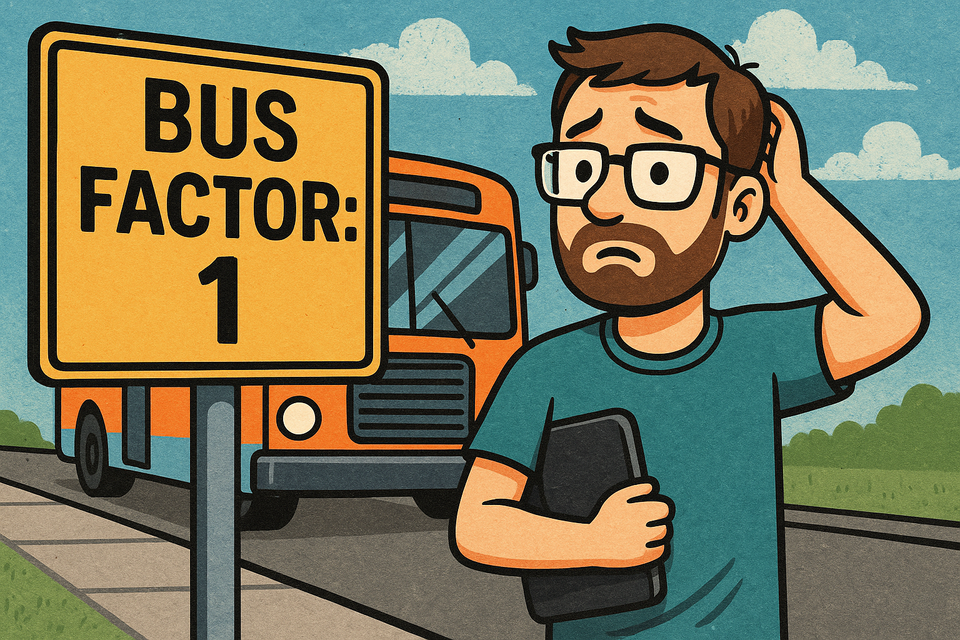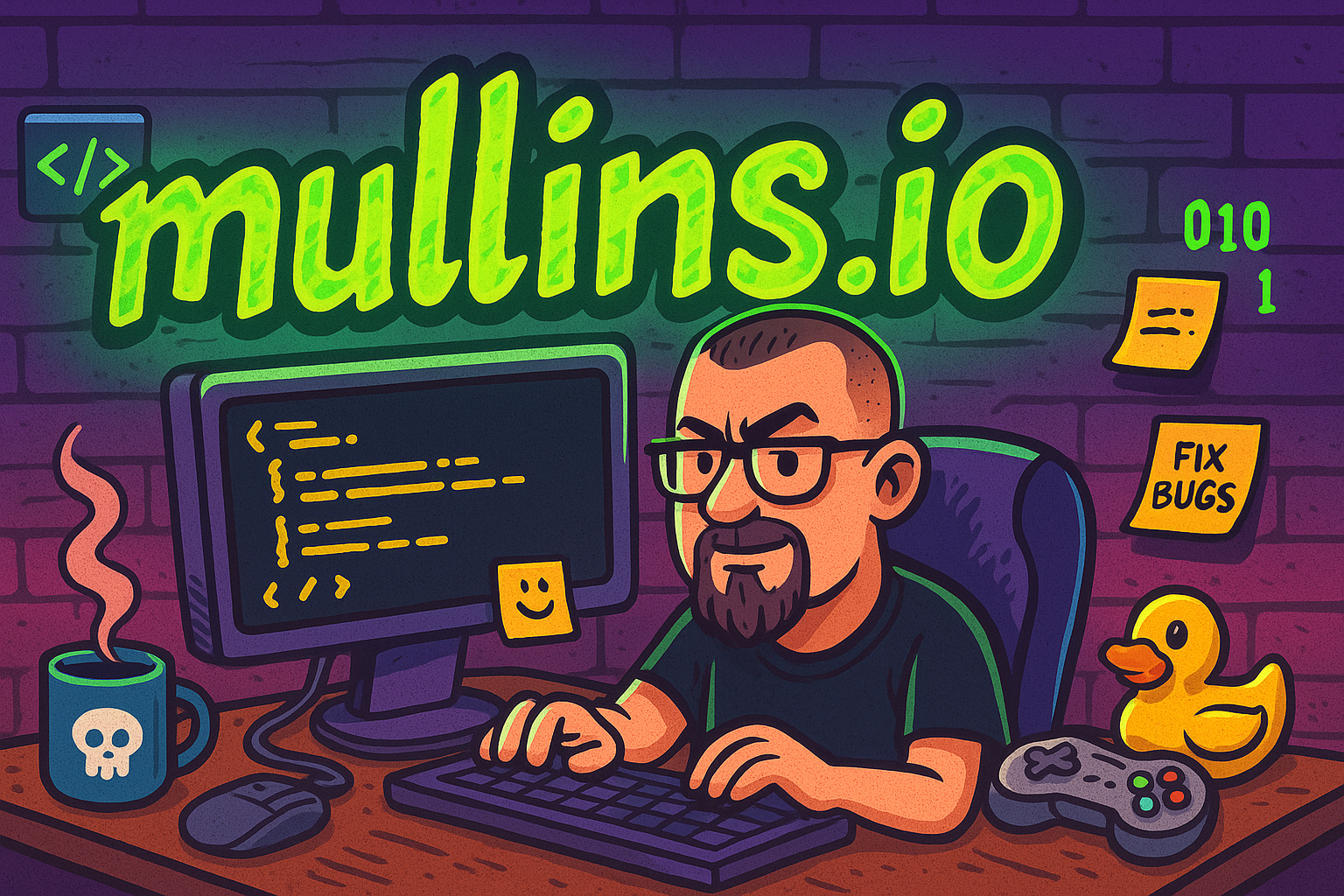Don’t Get Hit by the Bus (Alone): Why a Low Bus Factor Will Wreck You

Knowledge hoarding isn't job security, it’s a future disaster.
Let’s get this out of the way:
If your company’s bus factor is 1, your project is on life support.
What’s a “Bus Factor”?
The bus factor measures how many people can get hit by a bus (or win the lottery or rage-quit via Slack) before your team is screwed.
Bus factor of 1? One person leaves, and everything collapses.
Bus factor of 5? You’ve got backups, cross-training, and the breathing room to not panic when someone’s out.
No, it’s not about buses. It’s about risk and resilience.
Low Bus Factor = High Chaos Potential
Here’s what happens when you treat tribal knowledge like job insurance:
Brain Bottlenecks
If only one person knows how a system works, that person owns the fate of the entire project. And when they leave? Poof—half your app just became an archaeological dig site.
Burnout City
Being the go-to person for everything sounds good… until you’re working weekends, can’t take time off, and get DMs like:
“Hey, sorry to bother you while you’re literally in surgery, but prod’s down…”
No Innovation
A team with one “expert” isn’t innovating. They’re firefighting. And worse—everyone else stays stuck, because they don’t feel ownership.
False Security
Leadership thinks everything’s running fine because nothing’s on fire yet. Meanwhile, knowledge is siloed, documentation’s outdated, and you’re a resignation away from total collapse.
Real-World “Oh No” Moments
Twitter (2023): Outage caused by a single engineer’s departure.
GitHub (2020): Multi-hour downtime, only a few engineers knew how to fix it.
Apple (2011): Steve Jobs dies, and the company scrambles to find its soul.
When knowledge resides in a single brain, your team’s stability is a house of cards.
Side Effects May Include…
Lower morale: When one person carries the weight, everyone else disengages—or worse, panics.
Limited growth: No one’s learning new things. No one’s challenged. Everyone’s just trying to not break anything.
Toxic hero culture: You glorify the “only one who can fix it” until they break.
Total team breakdown: And then they leave. Cue chaos.
What to Do Instead
Raise your bus factor like your project depends on it—because it does.
Cross-Train Like It’s a Team Sport
Everyone should know a little about everything. At least one backup for every critical system.
Document or Die
If it’s not written down, it doesn’t exist. Docs are your team’s collective brain. Use it.
Normalize Pairing & Mentorship
Encourage knowledge sharing. If someone knows something cool, make them show it to someone else.
Challenge Hero Mentality
Celebrate team wins, not lone-wolf coding marathons.
Rotate Ownership
Let people lead features they didn’t build. Spread the responsibility (and the learning).
TL;DR
A low bus factor isn’t job security, it’s a future fire.
If knowledge lives in one person, your team’s fragile.
Raise your bus factor with cross-training, documentation, pairing, and culture.
Avoid becoming the “only one who can fix it” because one day… You won’t.
✊ mullins.io
If I get hit by a bus tomorrow, at least someone else has the damn deploy keys.
Hey, since you made it this far, you might actually care about becoming a better leader.
Good news: I wrote an ebook that’ll help you skip years of trial and error.




Comments ()